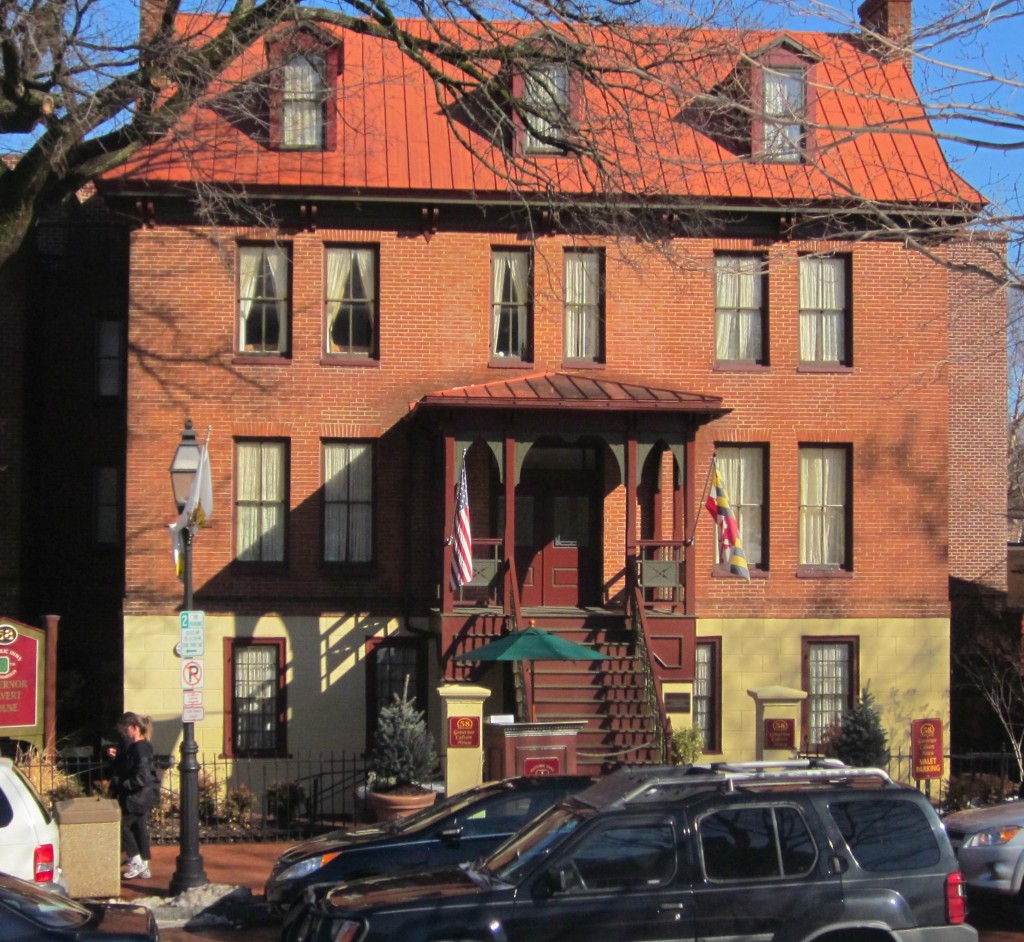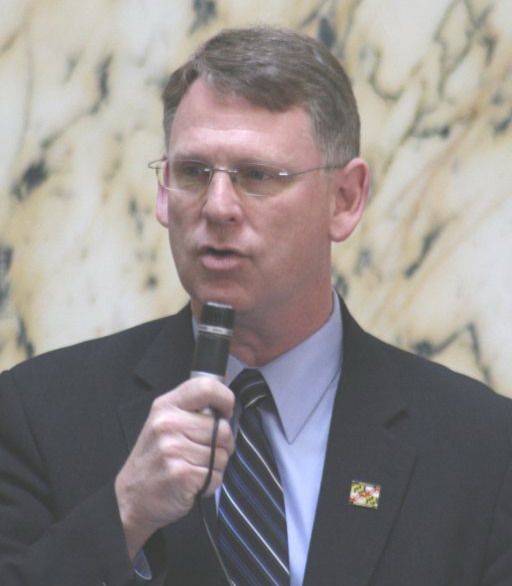Senators object to bill that would force most legislators to commute
By Jeremy Bauer-Wolf
Sen. Allan Kittleman’s colleagues on a Senate committee were clearly unhappy with his legislation that would force most of them to commute and no longer reimburse their lodging in Annapolis during the session.
Kittleman, R-Howard and Carroll, has again introduced legislation that would restrict the housing stipend legislators are permitted during session – a maximum $101 per day – to those living more than 50 miles from Annapolis.
He also has proposed legislation to prohibit their use of hotel reward points from any Annapolis lodging.
The Senate Education, Health, and Environmental Affairs Committee heard the legislation Thursday, along with two other Kittleman bills that would modify Maryland’s Open Meetings Act to include providing agendas in advance and make sure legislative subcommittees are covered by the law.
Most legislators would have to commute
Under SB 421, any legislator who lived 50 miles or closer to Annapolis would be forced to commute daily from their respective districts. Only during the last two weeks of session or when the presiding officers deem it acceptable could an exception be made, like during harsh weather conditions or a particularly late night, and then on and a case-by-case basis.
According to the Department of Legislative Services, 146 of the 188 legislators used this perk last year, and the state paid out $1.4 million for hotels or rentals. DLS advises that $816,000 was paid to 105 members whose residences are within 50 miles of the State House; 19 members received no reimbursement for housing.
Because SB 421 falls under the jurisdiction of the General Assembly Compensation Commission, the EHE committee would need to approve it as a constitutional amendment Marylanders would vote on come November.
“I just think our citizens who have to drive quite a bit for their jobs expect us to do the same,” Kittleman said.
Committee members, both Democrats and Republicans, including Sens. Bryan Simonaire, Bill Ferguson, J.B. Jennings, Joanne Benson, and committee vice chair Sen. Roy Dyson and Chair Joan Carter Conway all volleyed Kittleman with questions on the bill.
Hard work at the State House
Benson, who said she lives 30 miles away in Prince George’s County, gave an impassioned, almost uninterrupted five-minute commentary against the bill.
“This job down here, if you’re doing it right, is hard,” Benson said. “It is hard. For those of us, particularly me, who have a district inside the beltway, Prince George’s County … the needs are different. I have to work seven days a week. I come down and work seven days a week. I cannot understand why this bill is here, as hard as we work down here, early in the morning to late at night.”
Jennings, R-Baltimore-Harford, also expressed concerns.“Maybe 50 miles is close as the crow flies, but you have to take into traffic going to and coming home,” he said.

Governor Calvert House hotel on State Circle across from the State House is a popular place to stay for legislators during the session.
Jennifer Bevan-Dangel, executive director of Common Cause Maryland, said that while her organization supports the bill, she is open to reducing the radius the bill affects.
“Perhaps the right number is 25, or 28,” she said. “We’ll leave it to the committee to decide.”
The Department of Legislative Services (DLS) estimated annual savings of $784,000 from fewer housing stipends, offset by the increases for mileage reimbursements.
No rewards for housing allowance
Kittleman’s companion bill, SB 845, would prevent members of the legislature from benefitting from any rewards or point-counting programs that hotels and other institutions offer, should members take advantage of the state housing allowance.
While current law prohibits the General Assembly from accepting gifts over $20 or capitalizing on free or discounted travel and lodging, Kittleman said nowhere does the law exclude the point programs and incentives. Marriott, for instance, offers a rewards program that allows the user to accrue points and receive discounts on rooms and other creature comforts.
“Where you still have a lot of problems is the reward program accrual or if [a General Assembly member] is staying infrequently at hotel and it’s being put on a personal credit card, and in particular hotel points,” said Bevan-Dangel. “This law would clarify that even those programs available to the general public … would not be permissible.”
Vice Chair Dyson, also a member of the Joint Committee on Legislative Ethics, said he thought that the point and reward programs were already prohibited, but that the bill would be helpful to make that clear.
“I think we have taken positions time and time again that this wasn’t permitted,” Dyson said.
Advance notice of meeting agendas
Maryland’s Open Meeting Act has long dictated that state, county and municipal hearings be accessible to the public, but Kittleman said the advanced announcement of an agenda has never been required.
SB 847, also sponsored by two Republicans, Sens. David Brinkley and Joseph Getty, would demand public bodies provide an agenda in advance of the meeting, though a time deadline for the agenda is not defined in the bill.
Candace Donoho, legislative director of the Maryland Municipal League, testified during the hearing that the organization supports the legislation with one amendment.
“What we asked for is an amendment that says we will provide information available, as much as we can possibly can, at the time the agenda will be required,” Donoho said.
Current language of the bill demands an agenda “containing information sufficiently descriptive to inform the public of the matters to be discussed or decided at the meeting.”
Kittleman said at the hearing that his office has already requested MML’s amendment.
Making subcommittees public bodies
Currently, Maryland’s Open Meeting Act does not recognize subcommittees of the General Assembly as public bodies. In theory, subcommittees can conduct closed-door meetings, which SB 738 aims to fix.
“We see this as a corrective bill,” Bevan-Dangel said.
The bill’s fiscal note indicates the DLS might need to prepare subcommittee meeting minutes, and make public live and archived video or audio of meetings at minimal cost.

MarylandReporter.com is a daily news website produced by journalists committed to making state government as open, transparent, accountable and responsive as possible – in deed, not just in promise. We believe the people who pay for this government are entitled to have their money spent in an efficient and effective way, and that they are entitled to keep as much of their hard-earned dollars as they possibly can.


